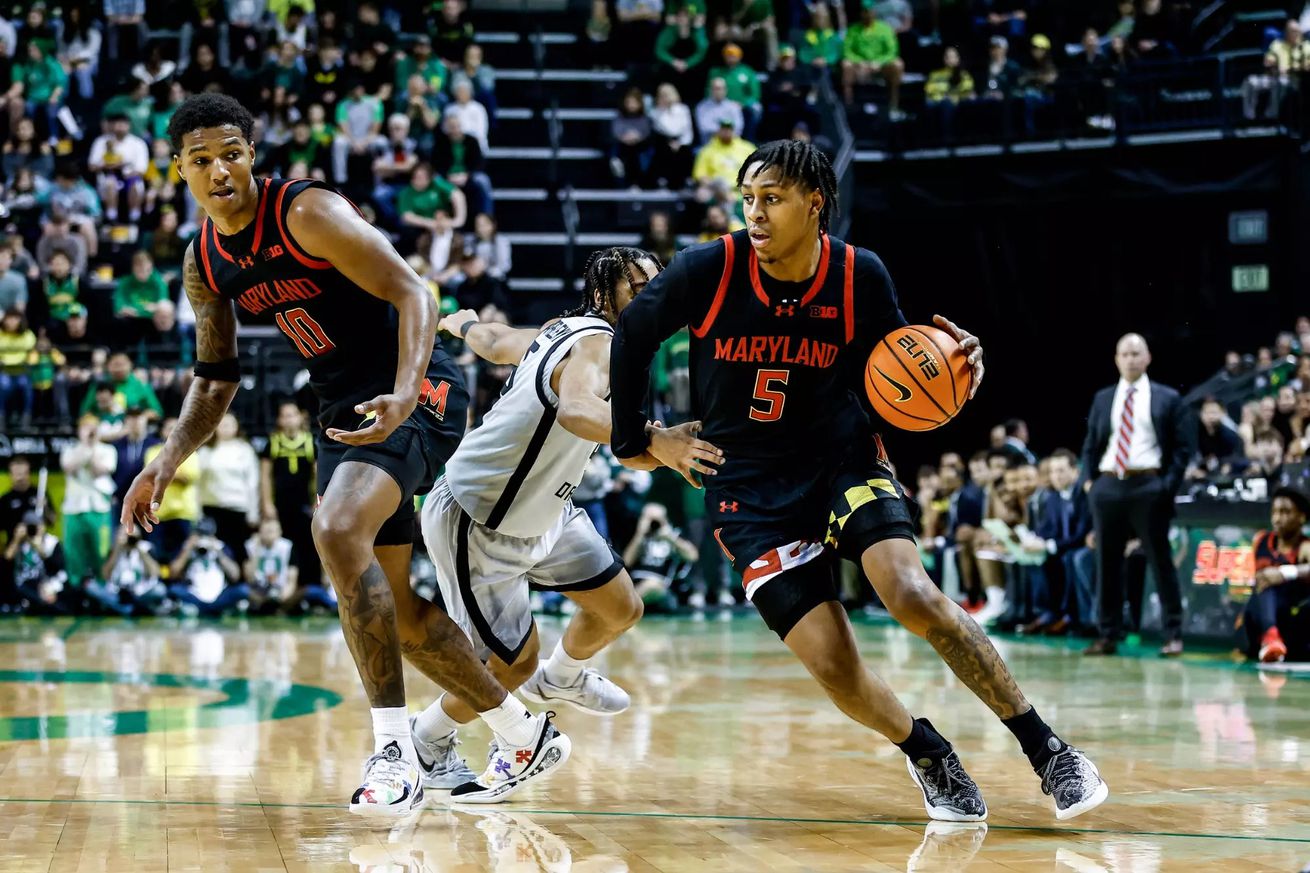
The Terps dropped another close road contest.
Maryland men’s basketball came up just short in its pursuit of an upset Sunday at No. 9 Oregon, falling to the Ducks in a nailbiter, 83-79.
A four-point loss to a top-10 team is usually a good sign for an unranked team. But it’s the second time this season the Terps have lost in such a fashion. And despite flashes, they left plenty to be desired.
Here are three takeaways from the game.
Road and close game struggles continue
The Terps picked up a disappointing loss Sunday that looked very similar to many others under head coach Kevin Willard.
They’ve coasted to plenty of lopsided victories against lackluster opponents. But when things are tight down the stretch, Maryland has repeatedly come out on the wrong side. They’re 8-20 in games decided by six points or less since 2022-23. Sunday was yet another tick in that loss column.
The Terps clawed back from a nine-point deficit and forced a tie game with 2:38 left. But they went cold from the floor when it mattered most, finishing the evening on a 1-of-9 shooting streak. Their night was capped off with a technical foul assessed to Derik Queen for calling a timeout when his team did not have any left.
Sunday also represented a continuation for Maryland of subpar performance on the road. It’s 6-20 on the road under Willard, and 0-3 this season. The Terps now have two close road losses to ranked opponents under their belt — flip either of those games and their season outlook is a lot different. But until then, they’ve got to prove they can emerge victorious despite the adversity of an opposing Big Ten crowd.
Streaky outing
Maryland and Oregon’s closing few minutes came down to the wire. For much of the contest, it didn’t look like it would be a nailbiter — but who was in control wasn’t consistent.
First, the Terps jumped out to an early advantage. Then, they parlayed that momentum into a 13-2 run headlined by back-to-back baskets by Rodney Rice, which put them up a commanding 30-17 with 10:09 left in the first half. Oregon found its offensive form after that, but Maryland matched it, leading by six points with less than a minute before halftime.
Then the tides changed. The Ducks came out of halftime firing, scoring virtually at will while holding the Terps to just two field goals in the second half’s opening seven minutes.
Oregon completely wiped away Maryland’s first-half advantage, leading by eight points with 12:30 left in the game. It took advantage of an aggressive defensive game plan that left shooters open, finishing the second half 6-of-11 from 3-point range.
But the Terps weren’t done. Queen, Rice and Ja’Kobi Gillespie took over virtually all of the offensive production, and it worked; they led a late charge to go up by four points with 7:20 left.
Despite the final result, Maryland once again displayed the ability to compete with a top team in the country, but it didn’t do so consistently enough to come out on top. That’s becoming a trend this season.
Contributions from the bench
The Terps haven’t gotten much help from anyone outside their starting five against high-major opponents this season. That changed against the Ducks. Deshawn Harris-Smith and Tafara Gapare both eclipsed 20 minutes and left their marks on the outing.
Harris-Smith didn’t light up the stat sheet, but he was a steady presence on defense and was often used as a key facilitator of the offense, bringing the ball up the court and feeding his teammates. He scored just four points, but did so on 2-of-3 shooting while notching five rebounds and three assists.
Gapare didn’t record a point in his 20 minutes on the court, but was one of Maryland’s better defenders down low. He blocked two shots, brought in three boards and recorded a steal.
Additionally, Jay Young was arguably the Terps’ most productive bench presence Sunday. In 12 minutes, Young was a perfect 3-of-3 from the field and 2-of-2 from deep with two assists, two steals and three rebounds.
